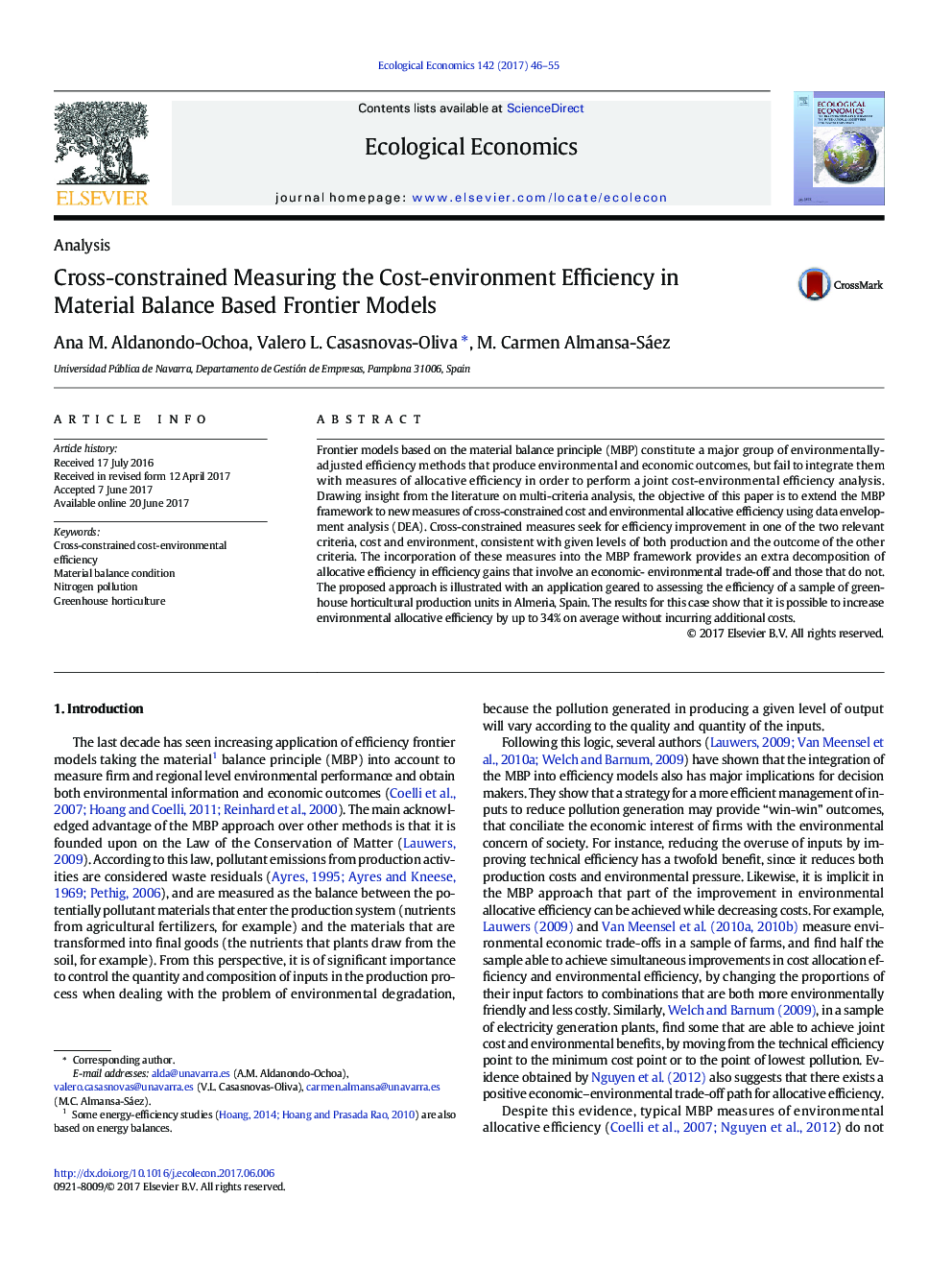| Article ID | Journal | Published Year | Pages | File Type |
|---|---|---|---|---|
| 5048534 | Ecological Economics | 2017 | 10 Pages |
Frontier models based on the material balance principle (MBP) constitute a major group of environmentally-adjusted efficiency methods that produce environmental and economic outcomes, but fail to integrate them with measures of allocative efficiency in order to perform a joint cost-environmental efficiency analysis. Drawing insight from the literature on multi-criteria analysis, the objective of this paper is to extend the MBP framework to new measures of cross-constrained cost and environmental allocative efficiency using data envelopment analysis (DEA). Cross-constrained measures seek for efficiency improvement in one of the two relevant criteria, cost and environment, consistent with given levels of both production and the outcome of the other criteria. The incorporation of these measures into the MBP framework provides an extra decomposition of allocative efficiency in efficiency gains that involve an economic- environmental trade-off and those that do not. The proposed approach is illustrated with an application geared to assessing the efficiency of a sample of greenhouse horticultural production units in Almeria, Spain. The results for this case show that it is possible to increase environmental allocative efficiency by up to 34% on average without incurring additional costs.
